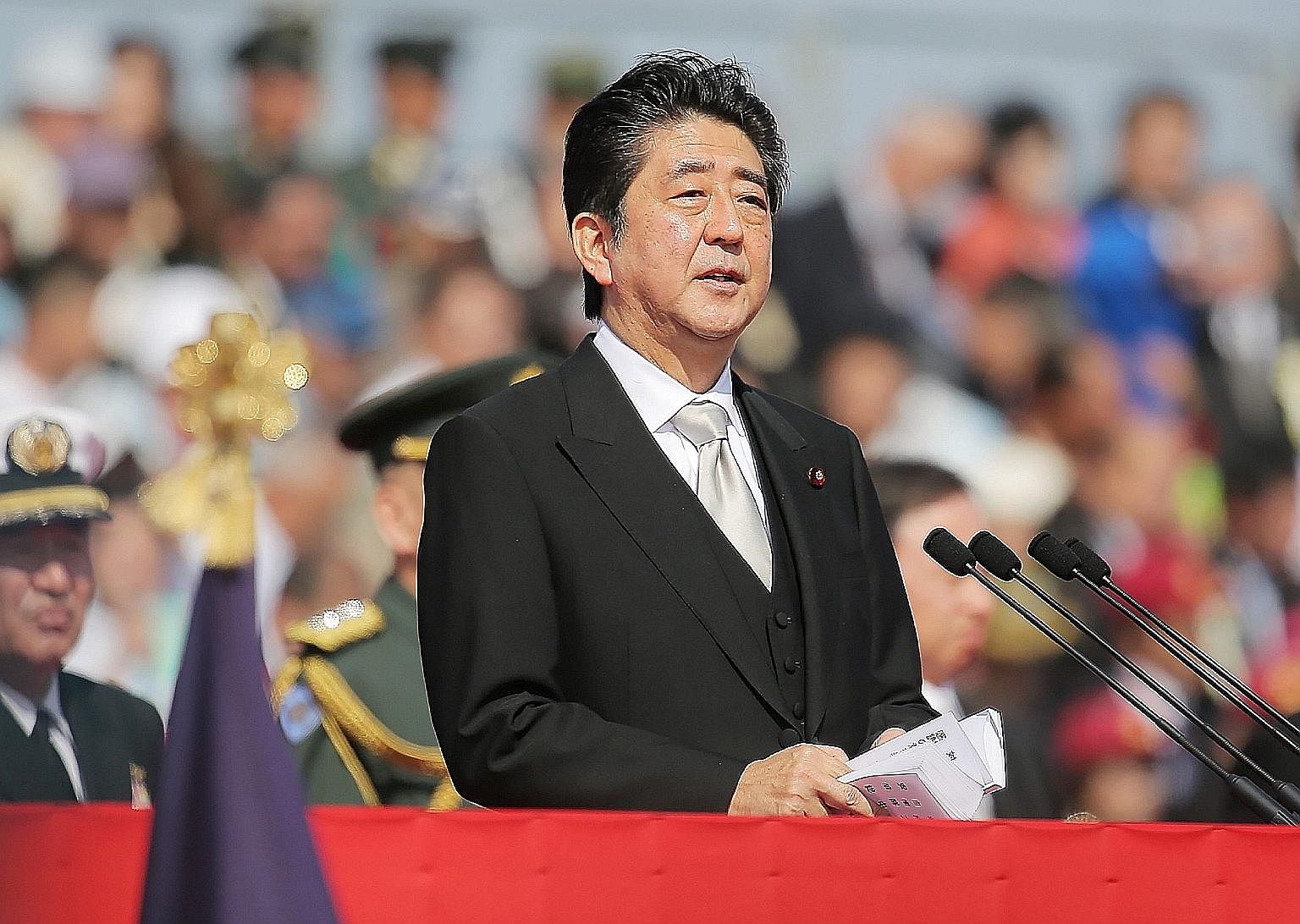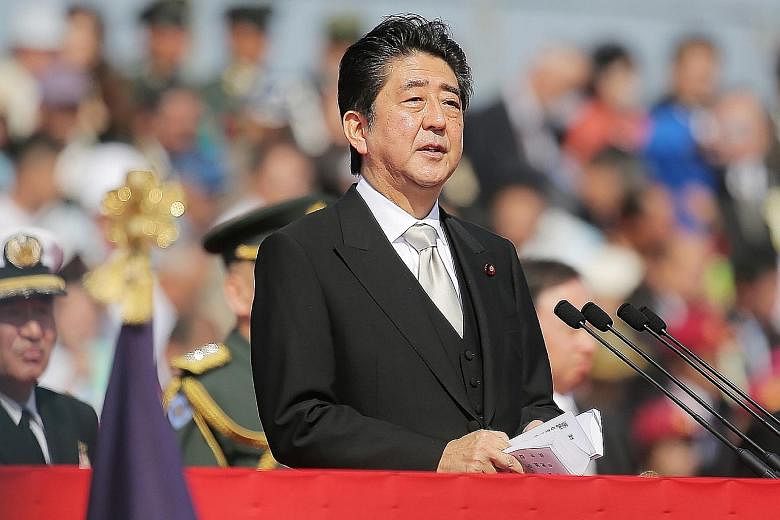Japanese Prime Minister Shinzo Abe is set to remain in power until 2021, after his party agreed to rewrite rules to grant its chief another three years at the helm.
Experts said this will buy him more time to achieve his goal of revising Japan's post-war pacifist Constitution, in particular the war-renouncing Article 9.
He will also be able to cement his legacy by presiding over the Tokyo Olympics in 2020, although he must oversee a potentially unpopular consumption tax hike slated for October 2019.
Mr Abe, who is into his second three-year term as Liberal Democratic Party (LDP) president, was due to step down in September 2018 if not for the revision of the rules on Wednesday. The change must still be formally approved at a party convention next March.
Moves to amend the Constitution were due after the LDP won big in elections in July to control both the Upper House and Lower House of the Diet. But Emperor Akihito's unexpected announcement that he wanted to abdicate - a prohibited move that requires the Imperial Household Law to be amended - has delayed the agenda. The Emperor's wish is seen as a priority, given the monarch's immense popularity, experts noted.
"Overhauling the Constitution and rewriting history have been the guiding lights of Mr Abe's political career and he sees these as legacy-building opportunities," said Professor Jeffrey Kingston of Temple University in Tokyo. "Presiding over the Olympics would be a chance to go out with fanfare."

LDP policy chief Toshimitsu Motegi said on Wednesday that the extension of Mr Abe's term will lead to stronger leadership and "create a more stable administration that is vital to increasing the international presence of Japan".
There are merits to this explanation, with SIM University's Japan expert Lim Tai Wei noting the "broad agreement that the external environment of Japan's neighbourhood has changed" because of factors such as the rise of emerging Asian powers and the belligerent North Korean regime.
He added that a term extension will "provide more continuity to fix an economy that is just showing... signs of economic recovery" with the "Abenomics" policy. He said the term extension can be seen against Japan's recent history of political instability, with a "revolving door" of prime ministers - there were five in as many years before Mr Abe took office in December 2012.
The push to extend leaders' terms in office is also evident elsewhere in North-east Asia. South Korean President Park Geun Hye on Monday proposed revising the charter to allow future presidents to serve up to two five-year terms. Talk is also rife that Chinese President Xi Jinping might want to stay on beyond the usual two terms. Prof Kingston said these developments "provide some political cover", though Japan's change was already on the cards in late spring.
But Mr Abe has a record of pushing contentious Bills through the Diet. Professor Koichi Nakano of Sophia University warned: "It is doubtful whether the extension of the term limit is necessarily going to be just beneficial to the country. The lack of checks and balances in politics can bring about complacency... and result in the loss of even good governance."

